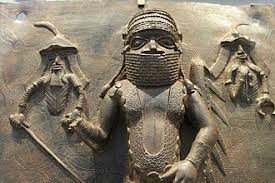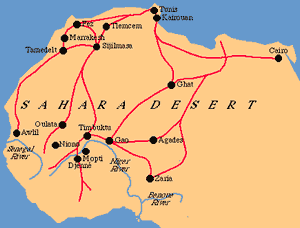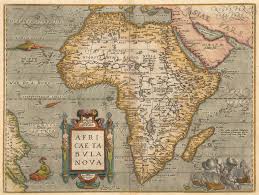The Story of Oba Ewuare: Benin’s Greatest King

The Story of Oba Ewuare: Benin’s Greatest King
Explore the legacy of Oba Ewuare, the powerful ruler who transformed the Benin Kingdom into a thriving empire known for its art, culture, and military strength.
The Kingdom of Benin, one of the most powerful empires in West Africa, underwent its greatest transformation under the leadership of Oba Ewuare the Great. Renowned for his military conquests, political reforms, and patronage of the arts, Oba Ewuare left an indelible mark on Benin's history. His reign from 1440 to 1473 shaped the kingdom’s culture, governance, and even its interactions with European explorers. Today, he is celebrated not only as a warrior and reformer but also as the founder of Benin’s world-famous bronze casting tradition.
Early Life and Rise to Power
Born as Prince Ogun, Ewuare was the third son of Oba Ohen. His path to the throne was anything but straightforward. After Oba Ohen was deposed and executed due to paralysis, a condition viewed as a loss of divine power, Prince Ogun and his brother Irughe were exiled. During his years in exile, Ogun traveled widely, learning military strategies, herbal medicine, and, as legend has it, powerful magic.
Upon returning to Benin City, Ogun found that his brother Uwaifiokun had seized the throne. According to oral history, Ogun, now an experienced warrior, launched a violent coup, killing Uwaifiokun and setting parts of Benin City ablaze. In the aftermath, he took the name Ewuare, which means “The trouble has ceased.”
Military Expansion and Empire Building
Ewuare was a brilliant strategist and a fearless warrior. He led an expansionist campaign that saw the Kingdom of Benin grow significantly. Oral traditions claim that he won 201 battles, conquering numerous towns and villages and integrating them into the empire. He appointed loyal chiefs in these territories to maintain control and enforce tribute payments to the throne. His reign marked the beginning of Benin’s Imperial Era, solidifying the kingdom’s influence across West Africa.
Political Reforms and Governance
Before Ewuare’s rule, the Uzama (a council of hereditary chiefs) held significant power, including the right to appoint the Oba. Ewuare drastically reduced their influence, replacing their authority with a hereditary monarchy, meaning that from his reign onward, the throne would pass to the firstborn son. He also established two key administrative groups:
• Eghabho n’ore (Town Chiefs) – Oversaw governance in various parts of the empire.
• Eghabho n’ogbe (Palace Chiefs) – Managed affairs within the royal court.
To train future administrators, Ewuare encouraged noble families to send their sons to work in the palace for small wages. This system created a well-structured bureaucracy that helped maintain stability and order.
Urban Development and Infrastructure
The extensive walls and moats of Benin City, constructed during Oba Ewuare’s reign
Under Oba Ewuare’s leadership, Benin City transformed into a planned metropolis. He oversaw the construction of massive city walls and moats, estimated to span 15 kilometers around the capital and 16,000 kilometers across the kingdom, marking territorial boundaries. The city itself featured nine grand gateways and wide boulevards, with designated areas for different crafts such as bronze casting, ivory carving, and woodwork.
Cultural Contributions and the Bronze Age of Benin
Benin Bronzes
One of Oba Ewuare’s most enduring legacies is the promotion of Benin’s renowned bronze artistry. He invited skilled craftsmen to settle in the city, encouraging the production of high-quality sculptures and metalwork. He also introduced the tradition of bronze head sculptures to commemorate deceased obas, a practice that continues today.
Additionally, he established the Igue Festival, a significant annual cultural celebration in Benin that honors the king’s spiritual powers. His introduction of coral beads as royal regalia remains a lasting symbol of Benin’s monarchy and cultural heritage.
The Succession Crisis and Tragic Family Losses
Despite his successes, Ewuare’s personal life was marked by tragedy. His two sons, Kuoboyuwa and Ezuwarha, poisoned each other in a power rivalry. Heartbroken, Ewuare banned sexual activity in the kingdom for three years, leading to a population decline and migration. He later lifted the ban, but the incident left a lasting impact on the kingdom.
Ewuare’s first surviving son, Ezoti, was assassinated, and his second son, Olua, ruled briefly before being overthrown by the Uzama. Ultimately, his third son, Ozolua, ascended the throne around 1483 and ruled until 1514.
Contact with the Portuguese
Ewuare’s reign coincided with the arrival of Portuguese explorers in 1473, marking the beginning of Benin’s contact with European traders. This early interaction set the stage for trade relations that would expand in the following decades, particularly under his successors.
Death and Legacy
Little is known about how Ewuare the Great died, but he is believed to have been buried near Benin City. His rule left a lasting impact on the Kingdom of Benin, and his policies, military conquests, and cultural developments shaped the region for centuries.
The kingdom flourished for another 400 years, until it fell to British colonial aggression in 1897. During this invasion, British forces looted Benin’s priceless artworks, including the bronze busts of its obas. Today, these stolen artifacts are displayed in museums across Europe and America, though a growing movement seeks their repatriation to Nigeria.
Conclusion
Oba Ewuare the Great stands as a defining figure in African history. His military brilliance, political reforms, and cultural contributions transformed Benin into a powerful empire. His legacy lives on through the city he rebuilt, the bronzes he commissioned, and the traditions he established. As efforts continue to reclaim Benin’s stolen artifacts, the world is reminded of the enduring greatness of Oba Ewuare, the Bronze King of Benin.


